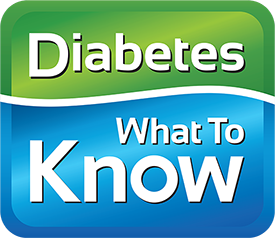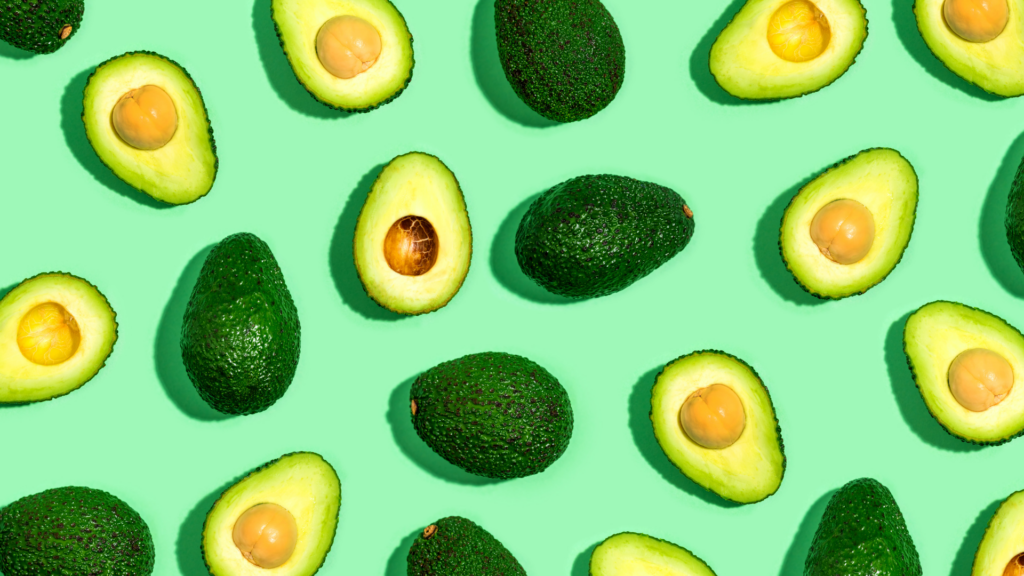By Melinda Maryniuk, MEd, RD, CDCES
Walking down the aisles of a supermarket can feel overwhelming. Shelves are bursting with an ever-increasing array of products. Advertisements and food packages make all sorts of claims about their health benefits. Some foods almost seem to glow with halo-like properties. But how does one know if something really is healthy or just a lot of hype? Are certain products worth the extra cost?
A health halo refers to assuming that a food is healthy based on certain claims, such as being low in calories or high in antioxidants. Some foods have been categorized as “halo foods” – because of the perception that they are more nutritious than others. There are also terms that have a halo-like aura, which could really use clarification. This article will help clear up confusion about health halo terms and popular foods/ingredients so you can make more informed choices and keep within your food budget!
Health Halo Terms:
Natural:
This is not a term that is defined or regulated. It can certainly be confusing and make you think something is healthy, but the word itself doesn’t mean anything. Read the nutrition facts label to understand the ingredient list and nutrient profile – and don’t just rely on a word like “natural” or “healthy”.
Fresh:
Of course, buying fresh fruits and vegetables is a great option. However, did you know that the frozen varieties of these same foods are just as healthy (when frozen in their natural state – without sugar and salt)? They are nutritionally equal to their fresh counterparts, less expensive, and they last longer!
Organic:
While definitions and standards for labeling something “organic” vary, in general, it means that farming and production of a food has met criteria to minimize use of toxic pesticides and fertilizers. Products labeled organic (such as fruit, vegetables, meats and beverages) are usually nutritionally equal to their non-organic match.
As a general guide, if you can afford it, choose organic fruits and vegetables when purchasing items with thin or edible skins such as: strawberries, apples, pears, grapes, celery, bell peppers, and leafy greens. The amount of pesticides is much lower in produce with thicker skins, so if you’re looking for ways to save money, buy conventional (not organic) avocados, winter squash, oranges, bananas and melons.
Sugar-Free/No Sugar Added:
When a food is labeled “sugar-free” or has “no sugar added”, it does not necessarily mean it is a more nutritious choice, or lower in calories or carbohydrates. The only way to really know about the contents is to read the nutrition facts label. Look first at the serving size (to know the amount the nutrition facts apply to) and then look at total calories and grams of carbohydrate & fat to make a fair comparison. Read the ingredient list, too, as sugar-free foods can be more processed than their regular version. In short, the sugar-free food could be a better choice for your health goals, but not always.
“Keto” Products:
The trend towards very low carbohydrate diets for weight loss has led food manufacturers to create a huge line of “keto” products. Most are highly processed and you’ll generally find the ingredient list to be long. These foods tend to be very high in fat and have minimal carbs – but are often high in calories. For example, ½ cup of regular ice cream is about 130 calories, but ½ cup of keto ice cream is 200 calories.
Health Halo Foods:
Coconut Oil:
Health food enthusiasts are always promoting the use of coconut oil for helping everything, from weight loss, to improving skin and hair health, to its antioxidant properties. However, coconut oil, like other tropical plant fats including palm oil, is highly saturated (like animal fats) and is linked to increasing LDL cholesterol levels (the bad cholesterol associated with heart disease). Bottom line, it’s fine to have small amounts of coconut oil if you enjoy the taste – but a better option is an unsaturated oil, like olive, canola, or corn.
Sea Salt:
The different kinds of salt that are available in the market have skyrocketed in the last few years. Is it necessary to change from your standard (and inexpensive) table salt and use sea salt or Himalayan pink salt for their health benefits? Probably not. When it comes to sodium, all salts (table salt, seas salt, kosher salt) are about the same. Standard table salt remains a good option as a source of iodine – a nutrient that is added.
Greek Yogurt:
This is one of the foods where the hype and the halo may be justified. Greek yogurt is high in protein, loaded with calcium and active cultures (adding good bacteria to your gut). Just make sure the kind you choose isn’t packed with added sugar and artificial flavors.
Gluten Free Grains:
Those who have celiac disease absolutely must avoid foods containing gluten (including wheat, rye, barley, and wheat derivatives such as farro and spelt). However, the increase in popularity of gluten-free products has made many people think these are healthier alternatives to glutenous grains. Not true! In fact, many GF products are lower in fiber and have not been fortified with key nutrients such as calcium, iron, niacin and thiamin. Eating whole grains have been linked with many health benefits, including decreased risk of heart disease and cancer – so for most of us, wheat, barley, and rye are an important part of a healthy diet – including the gluten!
Plant-Based Milks:
Plant-based milks, like almond milk, soy milk, & oat milk, are nutritious choices, especially if you are avoiding animal products or are looking for ways to reduce calories or carbohydrates. Some have added sugar or flavors, so choose one that is “unsweetened”. Depending on the processing, nut milks can be fortified with calcium and vitamin D. Some plant-based milks are lower in protein (cow’s milk is considered a rich source of protein), so just read the label to understand which one will fit your needs!
If you’d like to receive helpful diabetes information, sign up for our FREE email program here.
If you’d like to join a diabetes support group to learn and share with others, join here.
The medical information on Diabetes – What To Know’s website is provided as an information resource only. The content is not in any way intended to be nor should you rely on it as a substitute for professional medical evaluation, diagnosis, advice and treatment.

